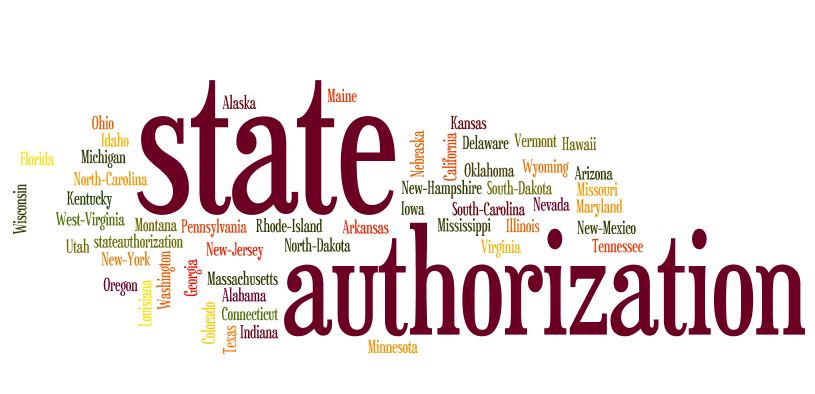Sloan-C, UPCEA, and WCET Partner on State Authorization Policy Recommendations
Published by: WCET | 6/16/2014
Tags: Distance Education, Financial Aid, Physical Presence, Regulation, SARA, State Authorization, U.S. Department Of Education, WCET
Published by: WCET | 6/16/2014
Tags: Distance Education, Financial Aid, Physical Presence, Regulation, SARA, State Authorization, U.S. Department Of Education, WCET
For the first time, WCET partnered with UPCEA and Sloan-C in providing recommendations on distance education policy. We stated our positions in a letter delivered on Friday to Secretary Arne Duncan of the U.S. Department of Education. In the letter we addressed the upcoming state authorization regulations that the Department is expected to release for public comment this summer.
Our hope is to influence the process prior to the Department publishing the regulations for public comment. In the letter, we…
Mollie McGill and I wish to express our gratitude to Kathleen Ives (Sloan-C) and Robert Hansen (UPCEA-University Professional and Continuing Education Association) for their work and support in being co-sponsors of this letter. We also with to thank our friends from the Distance Education and Training Council, National Council for State Authorization Reciprocity Agreements, Presidents’ Forum, and the United States Distance Learning Association for agreeing to lend their names as supporters.
We understand that not all of our institutions will agree with every recommendation in the letter. We balanced several factors in our decision-making including: existing state and federal laws, the Department’s need to protect federal financial aid funds, institutional burden in compliance, and protecting students as consumers. The impact on students was paramount in our thinking at all times.
We invite you to weigh in. You can do so now or use language from our letter. If you prefer, you can wait until the proposed regulations are published (probably in July) and submit reactions to specific language then. Or you can do both.
The Honorable Arne Duncan
Secretary of Education
Office of the Secretary
United States Department of Education
400 Maryland Avenue S.W., Room 7W301
Washington, DC 20202
We encourage you to let your opinion be known.
And I look forward to our groups working together in the future.
Russ
Russell Poulin
Interim Co-Executive Director
WCET – WICHE Cooperative for Educational Technologies
rpoulin@wiche.edu
If you like our work, join WCET!
2 replies on “Sloan-C, UPCEA, and WCET Partner on State Authorization Policy Recommendations”
[…] joined with Sloan-C and UPCEA to write a letter to Education Secretary Arne Duncan and Under Secretary Mitchell about our concerns with the direction the Department was taking and to […]
[…] that effort is currently on “pause.” OLC (then operating as Sloan-C), UPCEA, and WCET jointly suggested to the Department of Education what should (and should not) be included in any new regulation. Such […]